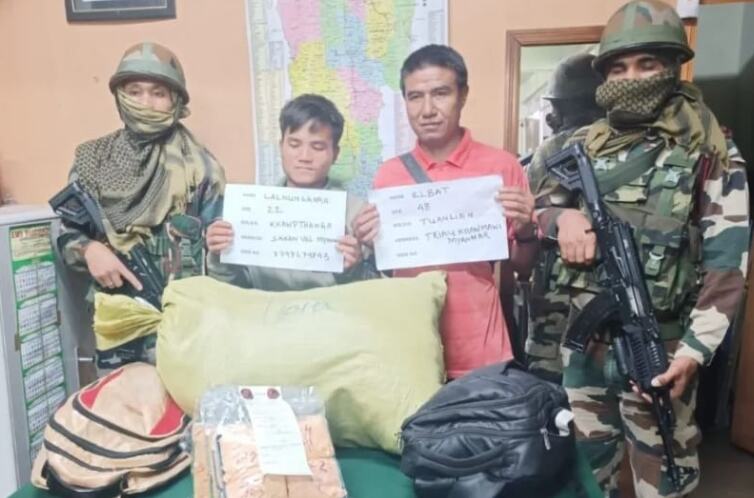Myanmar Junta's Burning of Narcotics Fails to Stop Surge in Illegal Drugs Trade
Head-high piles of heroin, cannabis, methamphetamine and opium were set on fire in the commercial hub of Yangon, watched by AFP reporters. Televised torchings also took place elsewhere, with a total of $446 million of narcotics going up in smoke according to officials.
Monday's bonfire of drugs was the largest in years, with piles of white, yellow and brown blocks of heroin, meth and opium going up in smoke. But authorities warned that their efforts were having little impact on the trade. Myanmar junta authorities torched almost half a billion dollars worth of illegal drugs on Monday to mark International Day Against Drug Abuse and Illicit Trafficking, but warned that their efforts were having no real impact on the drug trade. Head-high piles of heroin, cannabis, methamphetamine and opium were set on fire in the commercial hub of Yangon, watched by AFP reporters. Televised torchings also took place elsewhere, with a total of $446 million of narcotics going up in smoke according to officials.
Soe Htut, head of Myanmar's Central Committee for Drug Abuse Control, admitted to the Global New Light of Myanmar newspaper that authorities were failing to stop the surge in drug production and trafficking. “Even though countless drug abusers, producers, traffickers and cartels were arrested and prosecuted, the production and trafficking of drugs have not declined at all,” he said. The "Golden Triangle" border region between Myanmar, Laos and Thailand has long been a hub of illegal drug production and trafficking, particularly of meth and opium.
This includes Myanmar's Shan State, where ethnic rebel groups and militias aligned with the military are reportedly involved in the multibillion-dollar drug trade. The United Nations reported record seizures of crystal meth last year in Myanmar and said opium poppy farming had seen a revival in the chaos unleashed by the coup. More than 23 tonnes of crystal meth was seized in Myanmar in 2022. Meanwhile, the area of land used for opium poppy is now at just over 40,000 hectares, the UN said -- around half the size of New York City.
Monday's bonfire of drugs was the largest in years, but authorities warned that their efforts were having little impact on the trade. Analysts agree, saying that the military -- which ousted an elected government and seized power in 2021 -- is not serious about ending the lucrative trade. “The most powerful regional trafficking networks are able to operate with a high degree of certainty they can and will not be stopped,” the UN's Office on Drugs and Crime said.




